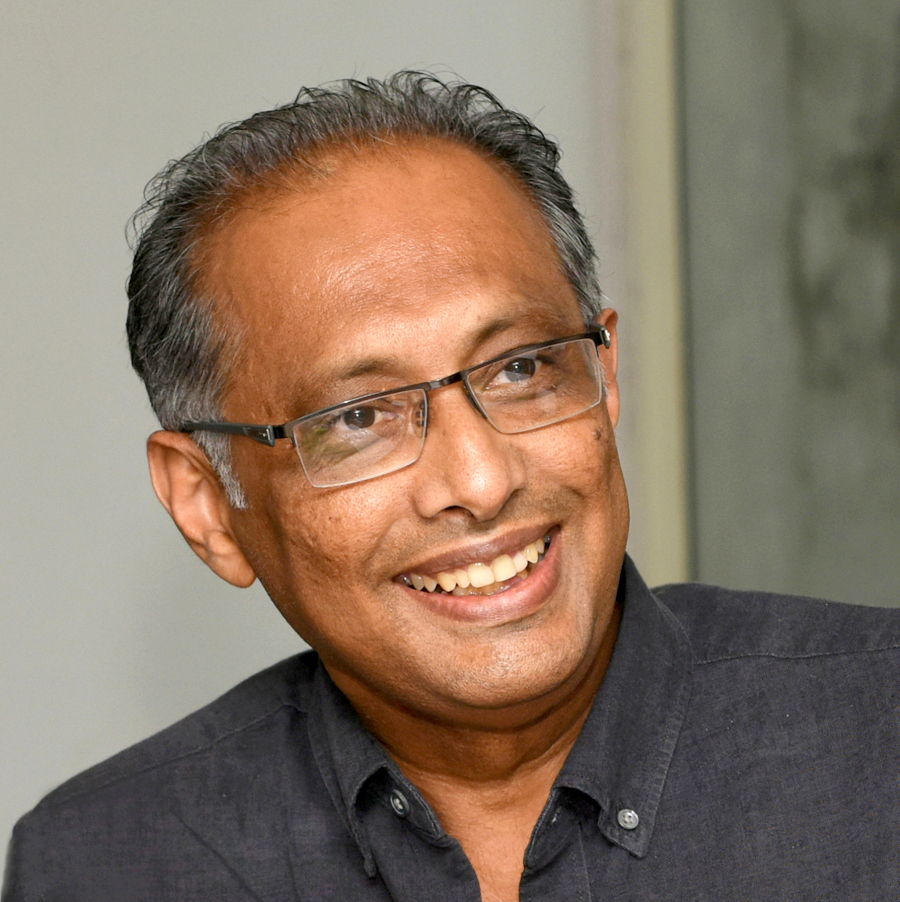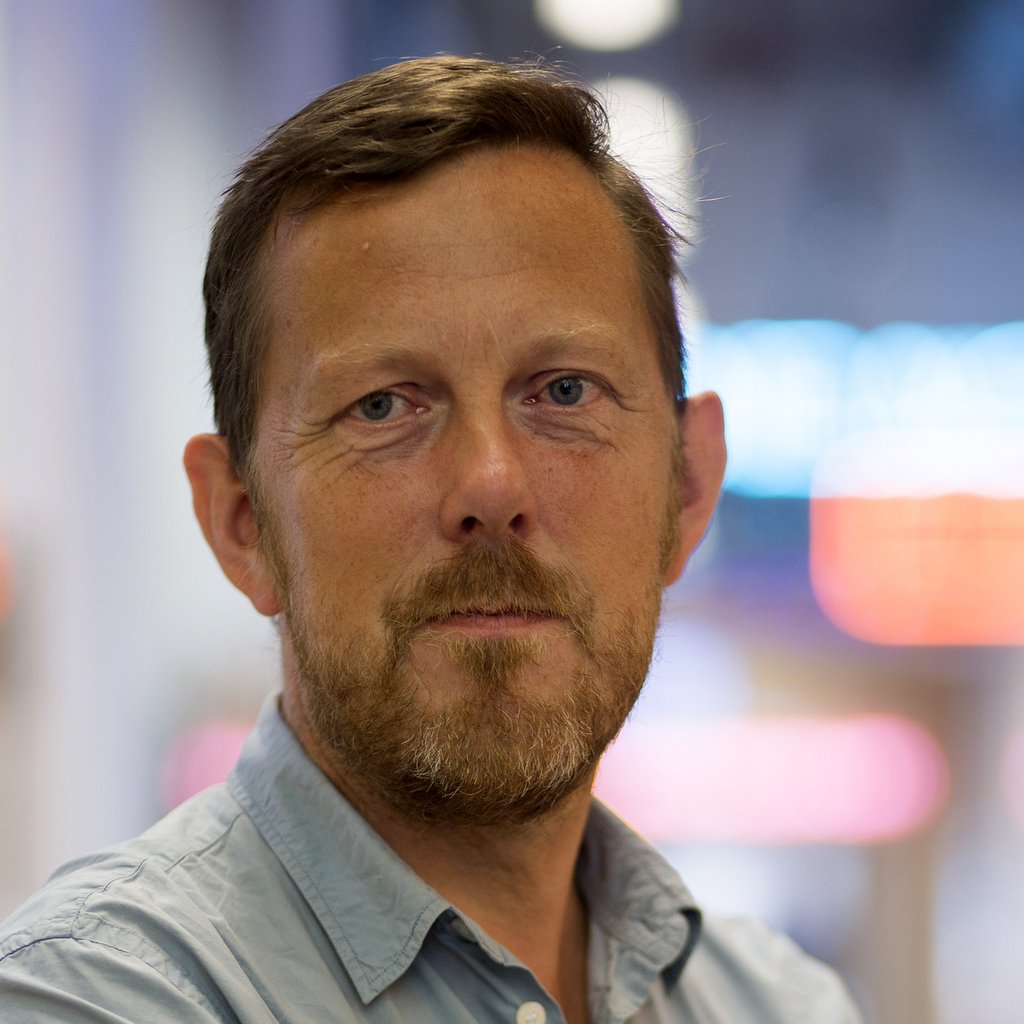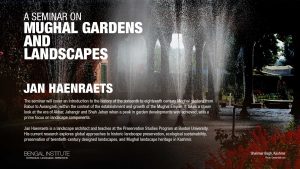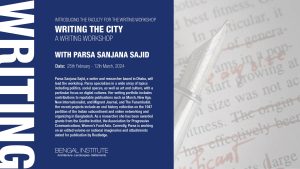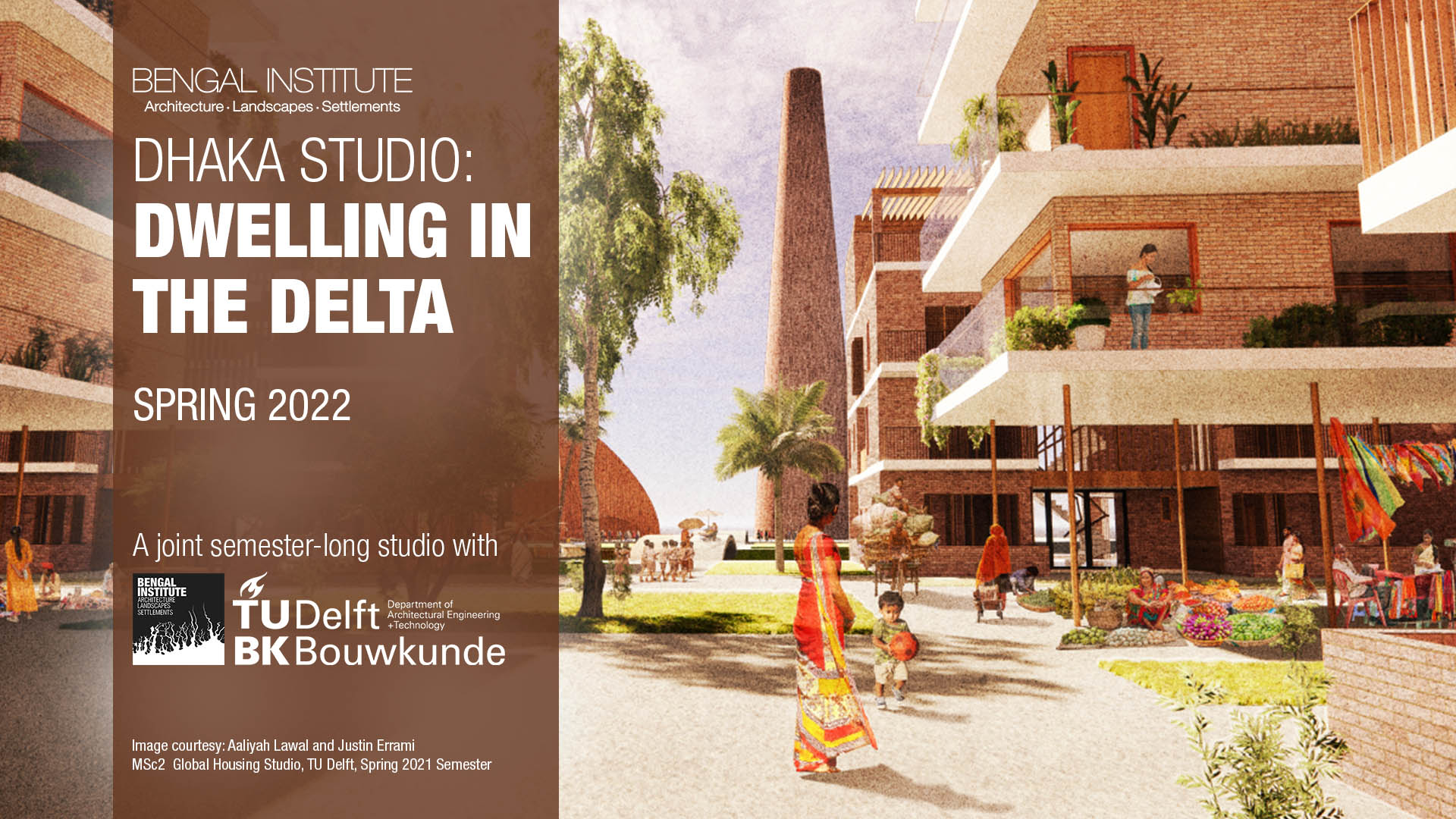
Spring 2022: Dhaka Studio: Dwelling in the Delta
Tue 19 Apr - Thu 30 Jun' 22
A collaborative studio of Bengal Institute with Global Housing Studio of TU Delft
Following the successful completion of the program that was initiated in spring 2021, Bengal Institute for Architecture, Landscapes and Settlements organized the second edition of the semester-long joint studio program in Spring 2022 with Global Housing Studio of Delft University of Technology, based in the Netherlands (also known as TU Delft, it is one of Europe’s premier institution, and ranked No 3 in QS World Universities Ranking).
“Dhaka: Dwelling in the Delta” was a unique semester-long studio in which students from Delft and Dhaka worked cooperatively in teams on online and offline channels. The studio program offered an opportunity for participants in the studio to interact with and learn from renowned architects, scholars and thought-leaders through intense studio activities, discussions and lectures on housing and urban environments. Resources from both cities were devoted to the studio including experts on delta planning and successful housing examples in the Netherlands, and academic experts and scholars in Dhaka. The final work of the studio will be published as a book with an exhibition.
The program included a design studio focusing on hydrological housing and lectures on urban design and housing conducted by faculty members from both institutions, as well as invited lectures from international experts. Considering the cross-cultural nature of international practices and pragmatics of working on specific sites for Dhaka, students of TU Delft worked in close collaboration with participants of Bengal Institute. They formed groups to exchange ideas, information and share knowledge of the studio and programs through online interactions and other communication channels.
For students at TU Delft, the “Bengal-TU Delft Studio” followed the MSc Global Housing studio that challenges participants to engage with pressing dwelling and urban issues in cities experiencing rapid urbanization, as well as with the increasing cross-cultural character of contemporary architectural practice. With the city of Dhaka, Bangladesh, as focus, the studio challenges included:
(1) issues of dwelling and housing in cities experiencing rapid urbanization,
(2) issues of urbanization and development in hydrological and vulnerable landscapes,
(3) understanding how housing is also a geographical fact, and
(3) a comparative understanding of Dutch and Bangladeshi settlement and landscape practices.
The studio program will be directed by Kazi Khaleed Ashraf from Bengal Institute, and Dirk van Gameren and Rohan Varma from TU Delft. Marina Tabassum, Rahul Mehrotra, Saif Ul Haque and others will join as visiting faculty.
In the beginning of the studio, students and faculty members from TU Delft traveled to Bangladesh, where they spent a week looking at the proposed site for the design studio in Savar, Dhaka, as well as some relevant and renowned monuments and sites in and outside of Dhaka.
Towards the end of the studio, participants of Bengal Institute traveled to the Netherlands, where they worked with their TU Delft counterparts during the final stages of the studio and presented their works in a final review. The studio concluded with the TU Delft students and Bengal Institute participants’ visit to some significant sites and landmarks in various parts of the Netherland.
Faculty:
Kazi Khaleed Ashraf
Dirk van Gameren
Rohan Varma
Critics and Special Guests:
Saif Ul Haque
Rahul Mehrotra
Marina Tabassum
Nelson Mota
Studio Theme and Focus:
- Habitats in delta landscape, housing morphologies, landscape strategies, constructional innovation.
Learning to deal with the large-scale involving an integration of architecture, landscape strategies, spatial planning and ecological planning, especially in the dynamic context of the Bengal delta. - The “large scale” and the “complex” as studio topics.
- Combining landscape urbanism and housing.
- Site and content in Bangladesh.
View this post on Instagram
View this post on Instagram
View this post on Instagram
View this post on Instagram
View this post on Instagram
View this post on Instagram
View this post on Instagram
View this post on Instagram
View this post on Instagram
View this post on Instagram
View this post on Instagram
Faculty
Upcoming Program
Past Program
Publication
